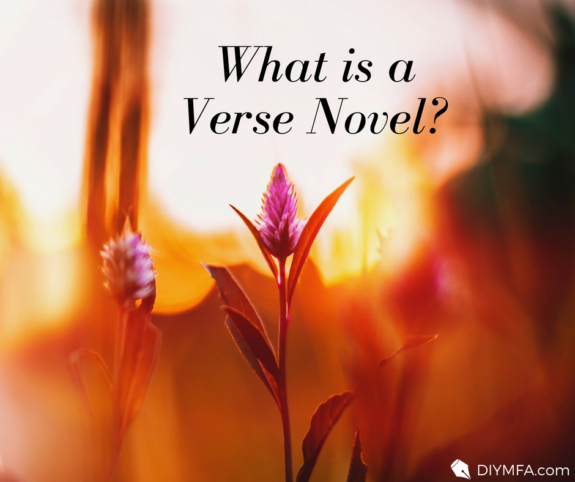What makes something a verse novel? Simply speaking, a verse novel (or novel in verse) is exactly what the name implies: a novel that is told in verse rather than prose.
It’s a bit more complicated than that, though. Why aren’t works like Homer’s Iliad and Odyssey and Virgil’s Aeneid called epic poems and not verse novels? After all, they are novel-length stories told in verse but epic poems and verse novels are not one and the same. Epic poems are poems on a grand scale, but they are still poems nonetheless. Verse novels, on the other hand–whether they are written as one long poem or a collection of shorter poems–must combine poetry with story. Perhaps the best definition I’ve found comes from Michael Symmons Roberts, who says:
To write a true verse novel, you have to be aware both of the musicality of the poetry and how the narrative structure works. This means that an an epic poem is still a poem, not a verse novel. Nor does “prose-with-line-breaks” count as verse novel material. Virginia Euwer Wolff (author of the Lemonade Trilogy) said in an interview with The Horn Book (2001):
Which is ironic because Wolff insists her own trilogy (one that reads like poetry) is actually prose-with-line-breaks and the books cannot be called verse novels. As she says, poetry is more than just prose rearranged with line breaks in funny places. In fact, poetry has an element of surprise and a musicality that differs from prose. In my mind, prose emphasizes character and story before language whereas poetry puts imagery and language first. The line breaks in poetry serve as parallels to breath and rhythm, whereas prose with line breaks must focus first on telling the story.
Which leads me to an important question: who decides if a something is a verse novel? The author? The reader? Some poetic authority from above? I’m not sure. What is more, if an author does not consider his/her work as verse, can we the readers appropriate it as such?
Again, I’m not sure. If an author says his/her work is prose then I feel that I must read and accept it as prose, even if it looks like verse. But what if the author set out to write prose and somehow it morphed into verse, with all the musicality and imagery that goes with it? Is it possible for an author to misplace their work as prose when really it’s poetry?
Some argue that poetry and prose exist on a spectrum, that while certain books may clearly reside at one extreme or the other verse novels live somewhere in between. After reading several verse novels, however, I’ve come to the conclusion that for something to fit that category, it must be both verse and novel. Verse novels are not watered-down versions of each genre shoved together into one book. The verse novel must, in fact, do double-duty, having all the elements of of both genres. This means a verse novel must have the music and imagery that we find in poetry and at the same time character development and story structure of a novel. Verse novelists must write good poetry and a good story, and they must combine the two seamlessly in order for the verse novel to work.
Interested in checking out some verse novels?
There are several great lists on the web to get you started.







